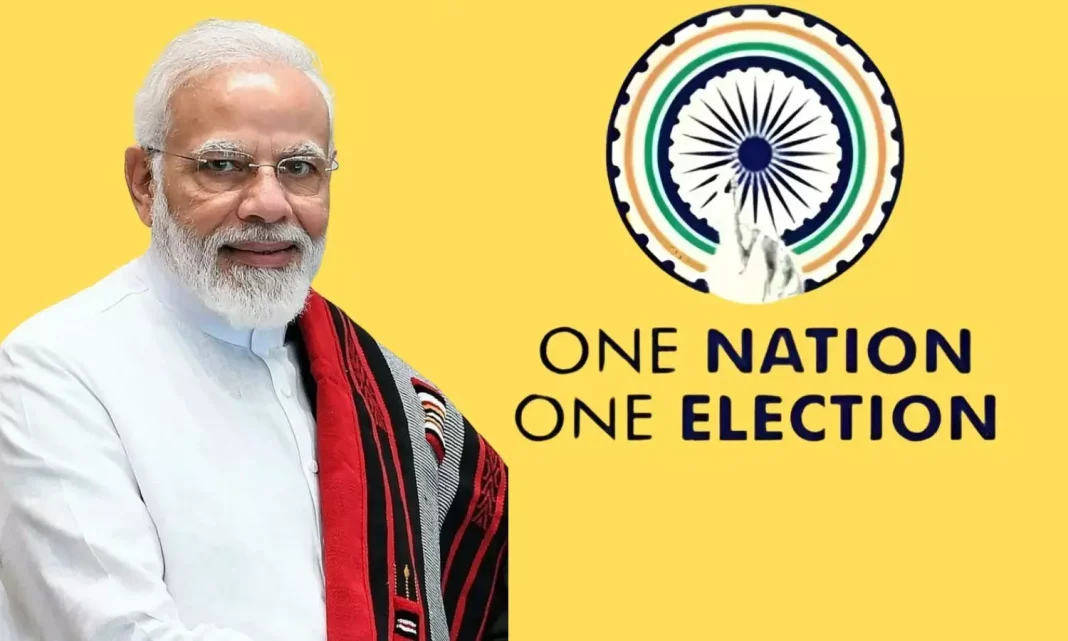(image : Bizz Buzz Digital)
On December 18, 2024, the ambitious ‘One Nation, One Election’ bill faced a significant roadblock in the Lok Sabha, as it failed to garner the required support for its passage. Introduced by the central government, the bill aimed to synchronize state assembly and parliamentary elections across India, holding them simultaneously every five years. Proponents claimed the move would streamline electoral processes, cut down costs, and minimize disruptions caused by frequent elections.
The Proposal and Its Objectives
The ‘One Nation, One Election’ concept has been a central topic in Indian politics for several years. The initiative seeks to align Lok Sabha and state assembly elections to reduce the expenses associated with staggered polls and to enhance governance efficiency. Prime Minister Narendra Modi has been a vocal advocate of this reform, emphasizing that frequent elections not only burden public resources but also hinder administrative focus on development programs.
Challenges to Implementation
Although promising in theory, the proposal has faced widespread criticism and skepticism. Experts and opposition leaders warn that simultaneous elections could dilute the distinct concerns of different states, marginalizing regional priorities under a centralized framework. Moreover, the logistical demands of conducting elections nationwide on the same day are immense. Ensuring security, managing voter turnout in diverse regions, and streamlining the election machinery would require flawless coordination, something unprecedented in India’s electoral history. The constitutional hurdles are equally daunting. The bill requires amendments to several constitutional provisions, including Articles 83, 85, 172, 174, and 356.Securing the mandatory two-thirds majority in both houses of Parliament is challenging, given the strong opposition from regional and national parties alike.
Reactions from the Opposition
Opposition leaders have raised significant concerns, labeling the bill as an attempt to centralize authority and overshadow state autonomy. They argue that India’s diversity and complex socio-political landscape cannot be addressed by a uniform electoral timeline. “The bill disregards the diversity of India’s federal system, reducing the space for regional voices and concerns,” stated a senior opposition leader during the parliamentary session. Many have also questioned the practicality of aligning the terms of various state legislatures, which could require drastic curtailment or extension of some state governments’ tenure.
Public Sentiment and Expert Opinions
The proposal has sparked a mixed reaction among citizens and political analysts. While some view the reform as a step toward reducing financial and administrative inefficiencies, others fear that it could compromise the democratic essence of addressing regional issues independently. Political analysts have noted that while the idea offers long-term benefits, its execution demands careful deliberation, thorough planning, and greater collaboration between stakeholders.
Way Forward
The failure of the bill in the Lok Sabha underscores the importance of building a broader consensus across the political spectrum. The government has expressed willingness to engage in further discussions to refine the proposal and address the apprehensions raised by critics. India, with its vast and diverse electoral landscape, continues to face unique challenges. The debate over ‘One Nation, One Election’ highlights the delicate balance required to ensure efficiency while preserving the democratic spirit of federalism. Whether the proposal evolves into a viable reform or remains a contentious issue, it has ignited an important discourse about the future of India’s electoral process.
By – Nikita



